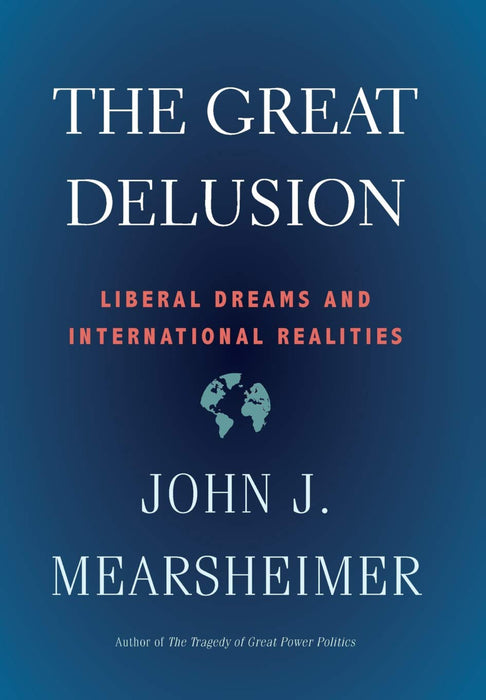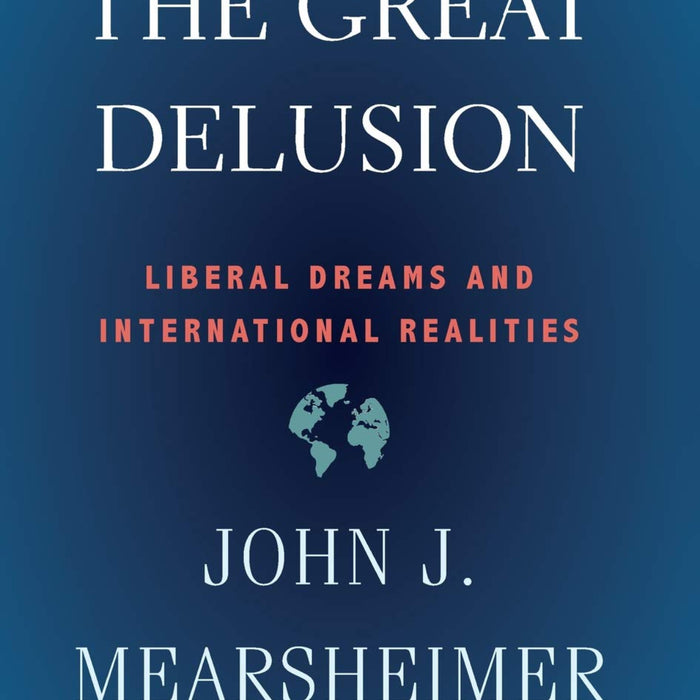The Great Delusion: Liberal Dreams And International Realities
- Publisher: POLITICS
- Availability: In Stock
- SKU: 58733
- Number of Pages: 323
Rs.500.00
Rs.650.00
Tags: A + Quality , A Plus Quality , Balance of Power , best books , Best Price , Best Selling Books , Democracy Promotion , Diplomacy and War , Foreign Policy , Geopolitical Strategy , Geopolitics , Global Affairs , Global Governance , Global Order , Global Power Struggles , Global Stability , International Relations Theory , John J. Mearsheimer , Liberal Dreams And International Realities , Liberal Internationalism , Liberalism in International Relations , Military Strategy , National Interests , Neorealism , ONLINE BOOKS , Online Bookshop , Political Ideologies , Political Philosophy , Political Realism , Political Science , Political Thought , Power and Security , Realist Theory , Superpower Rivalry , The Great Delusion , U.S. Foreign Policy , U.S. Hegemony , Western Imperialism , World Politics
Introduction
The Great Delusion by John J. Mearsheimer is a critical examination of liberalism’s influence on U.S. foreign policy and its failures in shaping global order. Mearsheimer, a leading realist thinker in international relations, argues that liberal hegemony—the idea that democracies should spread their values worldwide—has led to costly wars, instability, and unintended consequences. He contrasts this with realism, which prioritizes national interest and power balance over ideological expansion. This book challenges conventional wisdom and offers a compelling argument for why liberal internationalism is fundamentally flawed.
Key Points
1. The Myth of Liberal Hegemony
- Explores how the U.S. has pursued an idealistic strategy of spreading democracy and human rights.
- Argues that this approach has often led to unintended consequences, including military failures and global instability.
2. Realism vs. Liberalism in Foreign Policy
- Defines realism as a more pragmatic approach that focuses on power, security, and national interest.
- Contrasts this with liberalism, which assumes that spreading democracy leads to peace.
3. The Cost of Interventionism
- Examines U.S. interventions in Iraq, Afghanistan, and other nations as failed attempts to reshape the world.
- Highlights how these efforts have drained resources and damaged America’s global standing.
4. The Role of Nationalism
- Emphasizes that nationalism, not liberalism, is the dominant force in global politics.
- Explains how national identities and sovereignty often override liberal internationalist ambitions.
5. A Call for Realist Foreign Policy
- Advocates for a shift away from liberal interventionism toward a more restrained, interest-based approach.
- Suggests that the U.S. should focus on balancing power rather than trying to reshape the world in its image.
Why Read This Book?
- Challenges mainstream foreign policy perspectives with a realist critique.
- Offers a deep analysis of why liberal internationalism has failed in practice.
- Essential reading for students, policymakers, and anyone interested in global politics.
- Provides a fresh perspective on U.S. foreign policy and international relations.
Conclusion
The Great Delusion is a thought-provoking critique of liberal internationalism and its impact on global politics. John J. Mearsheimer presents a compelling case for why realism is a more effective approach to foreign policy, arguing that efforts to impose liberal values abroad often backfire. This book is a must-read for those seeking to understand the realities of power, international relations, and the limits of ideological ambitions in world affairs.
























